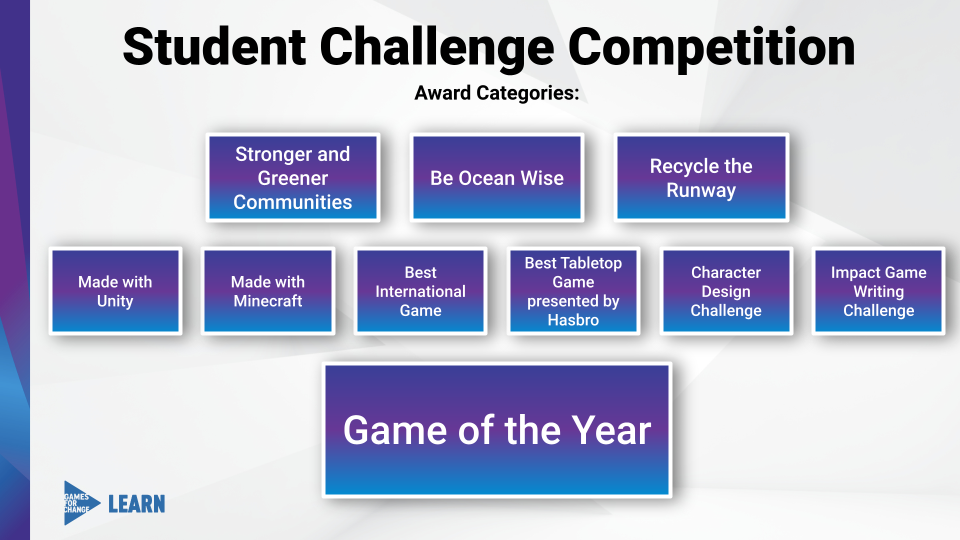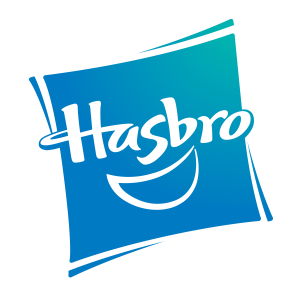Theme Categories: For the three theme categories, submission guidelines, directions, and evaluation criteria are as follows:
Theme Submission Guidelines:
- Games must be about one of this year’s social impact Themes.
- Games must be made using any free/open platform (ex: Scratch, Unity, Twine, CoSpaces, etc.).
- Games must be playable on a web browser and accessible via a URL unless they are made in Minecraft Education Edition or Roblox.
- Games made in Minecraft: Education Edition or Roblox require a video walkthrough of the game in lieu of a URL link (2 – 5 minutes long; MP4 or MOV file format).
Theme Submission Judging Criteria:
All games submitted to one of the three theme categories will be evaluated using this rubric:
Use of Theme – Through gameplay, players engage with important content relevant to one of this year’s themes.
Game Play – The rules of the game are clear, the game is playable and provides players meaningful choices while achieving the game’s goals.
Aesthetics – The game is well-designed, legible, and includes components that are pleasing to look at.
Fun Factor – Playing the game is an enjoyable and engaging experience.















